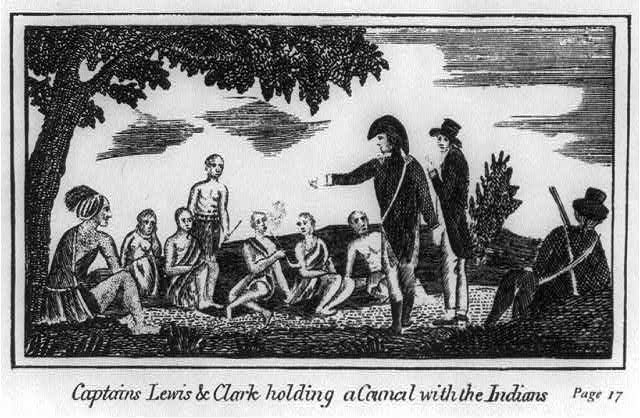The Lewis and Clark Expedition stands as a remarkable achievement in American history, thanks to the visionary leadership of President Thomas Jefferson. Beyond the popular narrative of exploration and scientific discovery, this article aims to shed light on the strategic importance behind Jefferson’s vision for the expedition. By delving into Jefferson’s motivations, planning, and desired outcomes, we can gain a deeper appreciation for the strategic brilliance that shaped this transformative journey.
The Context of Westward Expansion:
To understand Jefferson’s vision, we must first acknowledge the context of westward expansion during his presidency. Jefferson envisioned a rapidly expanding United States that stretched from the Atlantic to the Pacific, maximizing the country’s resources and securing its borders. The Louisiana Purchase of 1803 dramatically increased the size of the nation, setting the stage for Jefferson’s grand plan.
Securing National Borders and Trade Routes:
One of Jefferson’s primary goals for the expedition was to establish American control over the vast territory acquired through the Louisiana Purchase. By gathering information about the region’s geography, resources, and native populations, Lewis and Clark would pave the way for future settlements, trade routes, and a strong national presence in the west.
Navigational Intelligence and Exploration:
Jefferson recognized the strategic advantage of having accurate maps and navigational knowledge of the newly acquired lands. The expedition’s mission was not only to explore the uncharted western territories but also to survey rivers, identify potential trade routes, and establish a reliable connection between the eastern and western parts of the continent.
Diplomatic Objectives and Native American Relations:
Understanding the Indigenous nations inhabiting the western frontier was crucial for Jefferson’s administration. By establishing peaceful relations and gathering information about the region’s tribes, Lewis and Clark aimed to establish diplomatic alliances, secure trading partnerships, and ensure a peaceful coexistence between Native Americans and American settlers.
Gathering Scientific Knowledge:
In addition to geopolitical and economic motives, Jefferson was a true Enlightenment thinker who championed scientific curiosity. The expedition was an opportunity to gather invaluable scientific data, including botanical, zoological, geological, and geographical observations. The information collected during the journey would contribute to expanding scientific knowledge and furthering American progress.
Expansion of American Influence and Prestige:
Jefferson saw the Lewis and Clark Expedition as an opportunity to enhance America’s influence on the global stage. By demonstrating the country’s ability to explore and govern vast territories, Jefferson aimed to strengthen the young nation’s credibility among world powers. This strategic move positioned the United States as a force to be reckoned with, projecting its power and potential beyond its immediate borders.
Legacy and Inspiration:
Not only did the Lewis and Clark Expedition fulfill Jefferson’s strategic objectives, but it also left a lasting legacy. The expedition’s success paved the way for future explorations, such as those led by John C. Frémont and Zebulon Pike, further solidifying American dominance in the west and expanding the nation’s boundaries.
Thomas Jefferson’s vision for the Lewis and Clark Expedition extended far beyond mere exploration and discovery. It encompassed strategic ambitions aimed at securing national borders, establishing trade routes, fostering diplomatic relations with Native Americans, gathering scientific knowledge, and expanding American influence. Jefferson’s forward-thinking approach and meticulous planning laid the groundwork for the expansion and prosperity of the United States in the years to come. The Lewis and Clark Expedition stands as a testament to his strategic brilliance and continues to inspire generations to embrace bold visions and explore uncharted territories.
